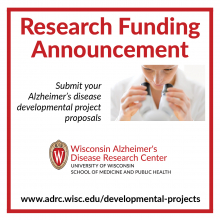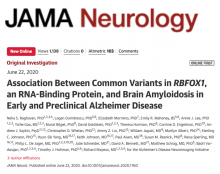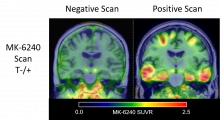
Researchers from the Wisconsin Alzheimer’s Disease Research Center, Wisconsin Alzheimer’s Institute, and the University of Wisconsin School of Medicine and Public Health shared new dementia research at the virtual 2020 Alzheimer’s Association International Conference (AAIC), July 27 to 31.
In total, UW Alzheimer’s disease researchers delivered more than 60 presentations throughout the event.
The conference, which was originally scheduled to take place in Amsterdam, Netherlands, was streamed online for free. As the largest international meeting...












